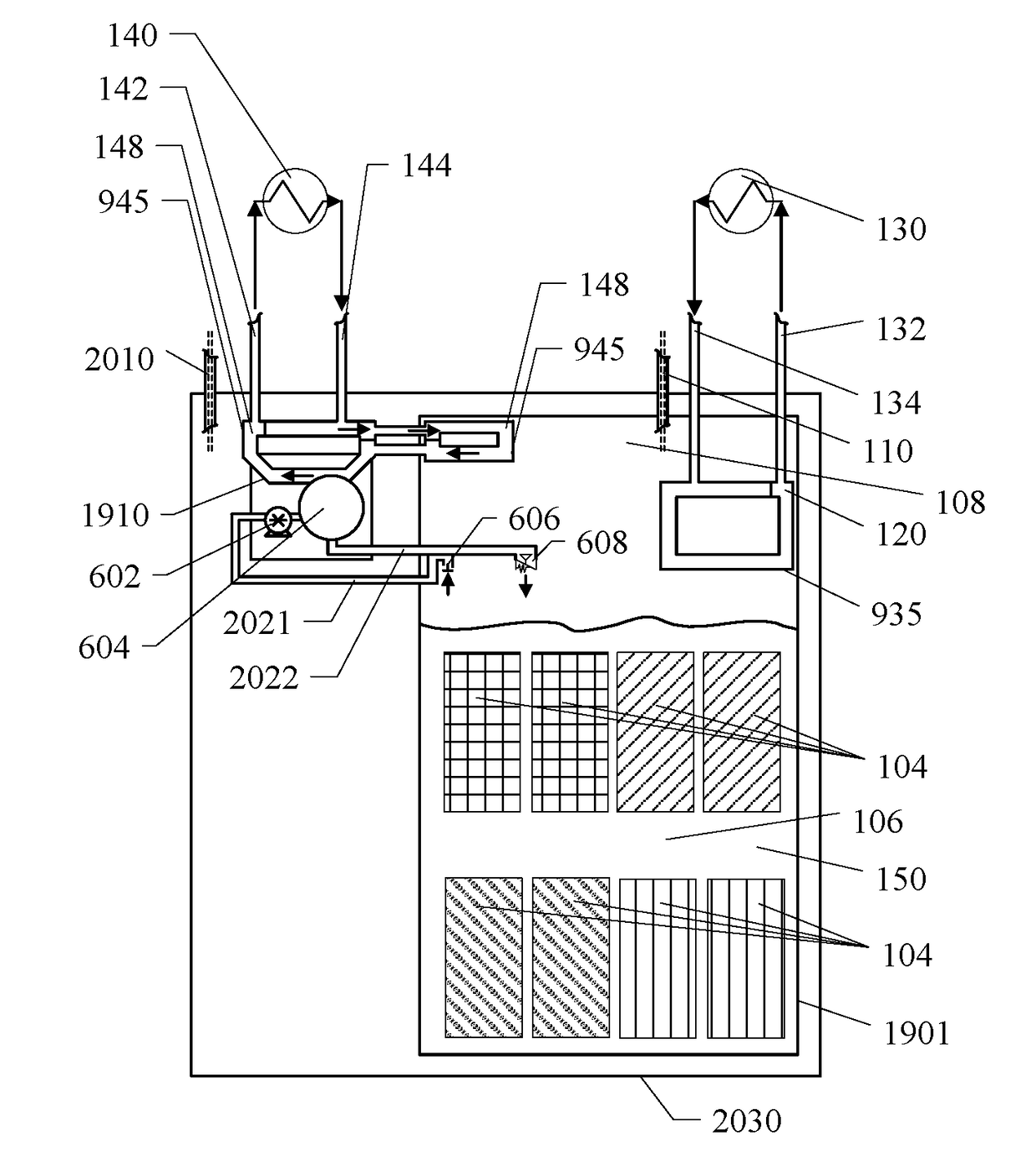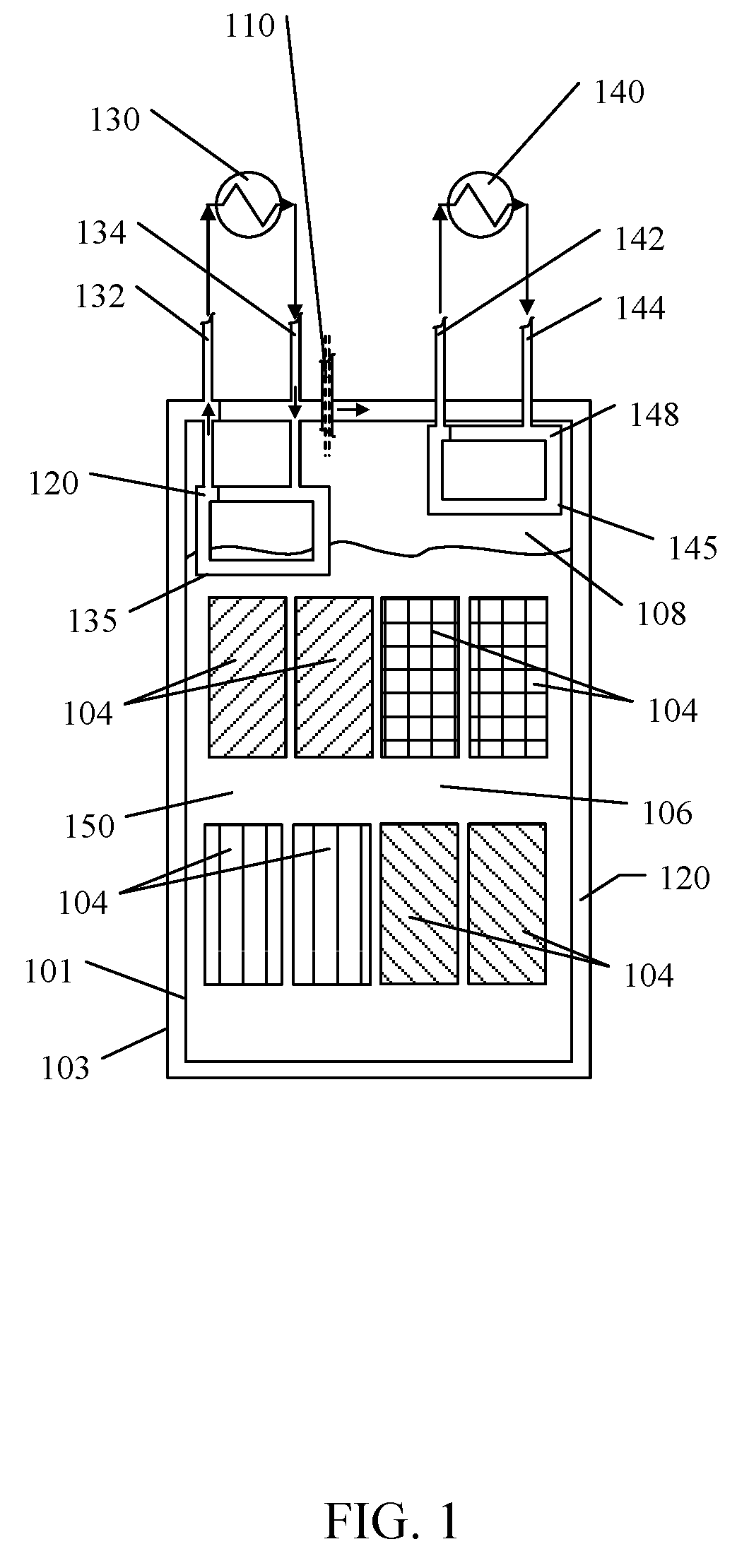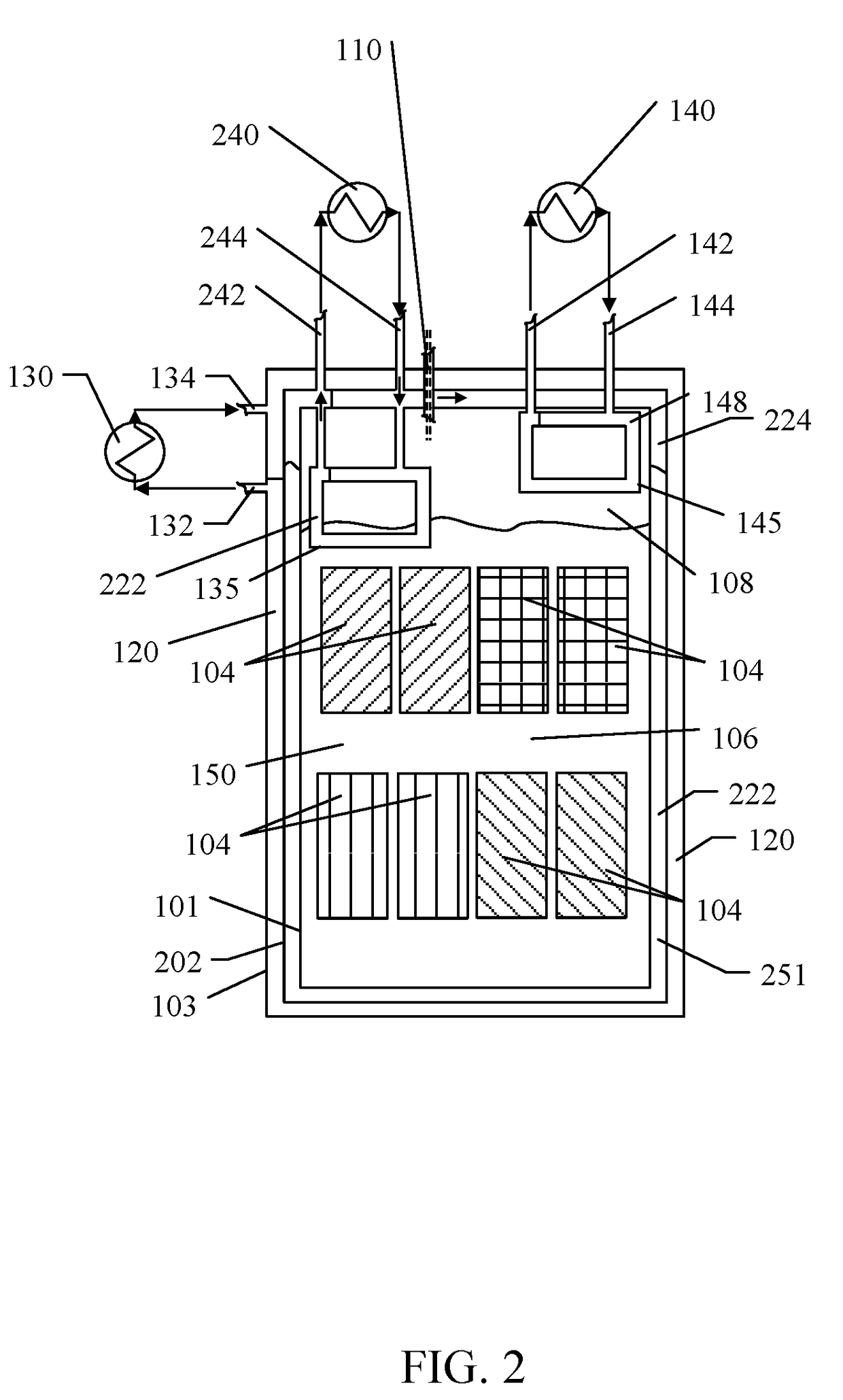System and method for fluid cooling of electronic devices installed in a sealed enclosure
a technology of electronic devices and sealed enclosures, applied in the direction of electrical apparatus casings/cabinets/drawers, casings with display/control units, instruments, etc., can solve the problems of significant thermal energy generation of electronic devices during operation, high construction and operational costs, and significant reduction of the functional life of electronic devices
- Summary
- Abstract
- Description
- Claims
- Application Information
AI Technical Summary
Benefits of technology
Problems solved by technology
Method used
Image
Examples
Embodiment Construction
[0044]Although described with reference to certain embodiments, those with skill in the art will recognize that the disclosed embodiments have relevance to a wide variety of areas in addition to those specific examples described below. Further, elements from one or more embodiments may be used in other embodiments and elements may be removed from an embodiment and remain within the scope of this disclosure.
[0045]All references, including publications, patent applications, and patents, cited herein are hereby incorporated by reference to the same extent as if each reference were individually and specifically indicated to be incorporated by reference and were set forth in its entirety herein; provided, however, to the extent there exists a conflict between this disclosure and a document incorporated by reference, this disclosure shall control.
[0046]As referenced herein, the terms “sealed enclosure” and “containment vessel” are used interchangeably.
[0047]As referenced herein, an “enclo...
PUM
 Login to View More
Login to View More Abstract
Description
Claims
Application Information
 Login to View More
Login to View More - R&D
- Intellectual Property
- Life Sciences
- Materials
- Tech Scout
- Unparalleled Data Quality
- Higher Quality Content
- 60% Fewer Hallucinations
Browse by: Latest US Patents, China's latest patents, Technical Efficacy Thesaurus, Application Domain, Technology Topic, Popular Technical Reports.
© 2025 PatSnap. All rights reserved.Legal|Privacy policy|Modern Slavery Act Transparency Statement|Sitemap|About US| Contact US: help@patsnap.com



